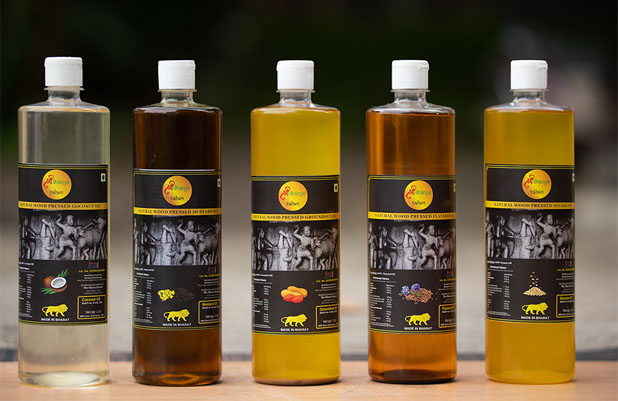About us

We are What we eat !!!
We at Shridhanya are committed to providing you with 100% pure, Natural & fresh products straight from our Mother Nature to keep you Healthy forever. We believe that food should be our medicine and medicine should be our food. It is said that || यथा अन्नम् तथा मनम् ||. The kind of food we eat so is our emotions.
।।:आयुःसत्त्वबलारोग्यसुखप्रीतिविवर्धनाः।।
।।:रस्याः स्निग्धाः स्थिरा हृद्या आहाराः सात्त्विकप्रियाः।।17.8।।
As per Shrimad Bhagwat Gita adhyay 17.8 , Foods which promote longevity, intellectual alertness, strength, health, pleasure and happiness and those that are sweet, oil, substantial and agreeable, are dear to one endowed with sattva.
Why does food affect our mood in so many different ways?
Our gut or gastrointestinal tract (also known as our second brain) is home to billions of bacteria. The food we eat directly affects our gut health (or the balance of good and bad bacteria) and influences the production of neurotransmitters (our body’s chemical messengers that are constantly carrying messages from the gut to the brain).
Ninety per cent of serotonin receptors — our mood regulators that influence our biological and neurological processes such as aggression, anxiety, cognition, mood, and sleep — are located in the gut. So, for example, when we eat something sweet or sugary, it produces dopamine (the feel-good hormone) and serotonin (the happiness hormone). The neurotransmitters carry those chemicals to the brain, and we feel happy.


The same goes with other kinds of food. Foods can trigger physiological changes associated with emotions. Consuming hot food increases discomfort and sometimes even pain. Whereas, foods high in caloric value can trigger positive moods, and consuming protein can improve motivation and concentration. Certain foods contain chemicals or ingredients that by nature trigger how parts of our bodies function — in some cases resulting in an increased heart rate or sweating due to a rise in body temperature.
For example, capsaicin, which is what makes spicy food taste hot, is irritating to the taste buds. Our taste buds contain something called VR1 receptors. Their job is to detect heat. When we eat something spicy, they get activated, triggering sweating or discomfort.

